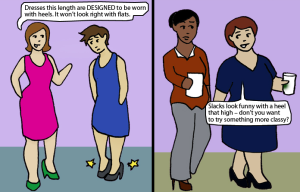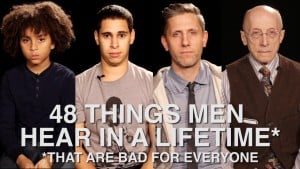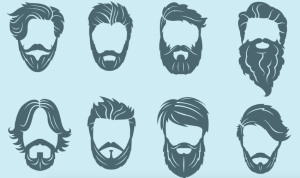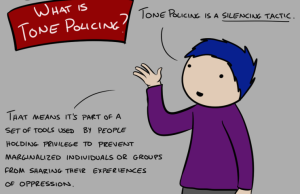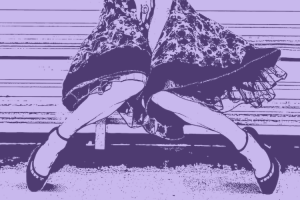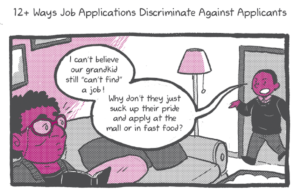
Source: Colonial Homeschoolers
I didn’t have a “normal” childhood.
I didn’t play video games, or ride the bus, or have recess. I never rode my bike around the block or played with neighboring kids. I didn’t have a functioning television, let alone cable.
In fact, I spent the greater part of my childhood exploring an eleven-acre plot of farm land and forest and reading books about strong women from history, while tucked into the corner of a sagging red couch in our 100-year-old farmhouse.
I was homeschooled.
And up until I entered public school in sixth grade, the people I spent by far the most time with were my younger sister and my parents.
That’s not to say that I didn’t have friends – both girls and boys – or that I didn’t get a wonderful education. In fact, my third grade educational assessment showed me at tenth grade levels in many subjects.
But my early years certainly didn’t fit the mold of the typical American childhood.
My birthday parties always had historical themes about struggle and hardship; my feet were covered in calluses from walking barefoot through the rocky forest paths.
Homeschooling is certainly not for everyone.
It is also only available to those privileged enough to have a parent who is able – and willing – to stay home from work to teach their children. But it is a valid and wonderful option for some families.
This article is not a critique of homeschooling.
Rather, this is an investigative journey into discovering how being homeschooled affected some of my relationships – in particular, my relationships with men – and what this says about growing up in America, even without an average introduction to society through public school.
The conclusions drawn will certainly not be universal; if anything, they are personal. But I hope that by investigating together, some light may be shed on how the young female mind develops with (and without) societal norms.
Anything You Can Do, I Can Do Also
Unlike some young women, I didn’t grow up buying into the notion that women can only do certain types of jobs, that women are less capable in science, math, and construction – or anything, for that matter.
With the only other student to compare myself to being my sister three years my junior, I was not exposed to gender stereotypes in the same way that many kids are. I was not interacting with a large group of kids, so I didn’t see people breaking off into interest groups based on gender.
When I got together with friends, it wasn’t girls versus boys. My most gender-biased activity, in fact, was a club that my sister and I started called the “Brave Women’s Club,” which essentially entailed taking adventures and spying on the neighboring farms.
All of my Barbies had professional jobs. They were pilots, professors, farmers, or business people. They had career aspirations beyond looking pretty. I was indignant when I received a doll that spouted out lines like “Let’s go shopping again!” and “Let’s make cookies for Ken.” I couldn’t understand why in the world this chick didn’t have better things to do with her time.
And when the evil mastermind Barbie caught some of the others in one of her diabolical schemes, it wasn’t Prince Charming who came to save the day. It was a collaborative group of friends who thwarted the evil plan that was endangering their pals.
Maybe this was because I wasn’t so constantly exposed to the rhetoric of princesses necessitating handsome princes to save them.
I think the semi-isolation of farm life and homeschooling made these themes less constant in my life. Additionally, I didn’t have cable programming drilling these falsehoods into my forming brain.
In this way, I believe I dodged the societal mindfuck that women can only do certain types of jobs well, and that they can’t be the saviors. I saw myself as an open book with career possibilities ranging from oceanographer to firefighter to historian.
But it wasn’t all positive.
Men as the Ones to Impress
Because of my limited contact with men (besides my family members and a handful of wonderful male friends), the male species was something of a mystery to me.
And because I didn’t have a brother and spent most of my time in the company of females, I grew to view men as elusive and special – as the ones to impress.
Yes, I knew that I could do anything I wanted in my life, but I also felt a deep sense of need to be the Perfect Girl. I felt that it was utterly crucial to impress the men that I came into contact with – to please them so that I was well-liked, despite my alternative upbringing.
Sadly, this grew into a deep-seated fear of confronting men in later life.
For years, I struggled to understand why I couldn’t stand up for myself when strange men groped me or tried to take advantage of me. Most of my female friends, almost all of whom had much more varied contact with males in their early lives and more traditional childhoods, would become exceedingly frustrated with me for just these reasons.
They didn’t understand why I couldn’t give the asshole who slapped my ass at the bar whatfor. To be honest, I couldn’t explain it either. I just felt an innate need not to create a scene – not to be a problem, to be good, and to impress. Even if it left me feeling used, hollow, and twisted.
I don’t know if this is a common problem among young women that have been homeschooled. I only know about my own experience. But when I finally realized what was going on in my mid-twenties, I was shocked.
How could I – someone who believed so deeply in the power, independence, and equality of womankind – have been playing into entrenched gender roles so deeply?
I don’t think I’ll ever fully know the reason.
But I think that without enough early contact with the boys who would become my peers as adults (causing me to search endlessly for their approval), and because I took social cues from what I knew of “classic” behavior for women, I fell into the trap of submission and docility. And it took decades to crawl back out.
It was clear: Despite spending my formative years outside of the public education system and eschewing standard norms, patriarchal views of women’s inferiority had somehow managed to seep into my consciousness.
Society Plays Its Hand
Whether or not my theories about homeschooling’s role in the matter are correct, I am certain of one thing: American society messed me up early, even though I was cut off from it in many ways.
It only took one year in public school for me to start despising my body, to start feeling the intense pull of pressure to be thin and beautiful. And I hung onto those ideals as the way to make men like me.
Despite being at the top of my class in high school, many people thought I was a complete ditz. I know, because when people found out what classes I took or my GPA, they would say, “No way! I didn’t know you were smart.”
And I am beyond certain that most of this was due to the way that I presented myself.
When you feel like looks and “being fun” are the things you have to give, they become a huge part of your identity – and the part that you play up. Instead of talking about my interests, goals, or passions to guys that I liked, I’d just wear a low-cut shirt and talk about the crazy shit that happened at last week’s party.
I’m still guilty of this today at times. I still catch myself avoiding intellectual conversation and sticking to what I came to believe early on was “my selling point.”
The Patriarchy Is Nobody’s Friend
The patriarchy affects more than just women.
It affects men when it tells them they need to like football, lift weights, hook up casually without feelings, and eat red meat – and that if they don’t do these things, they are weaklings. It rejects men who cry when they are sad, like watching ballet, or care about fashion.
The patriarchy is nobody’s friend.
It serves no helpful purpose in our society. And yet many of us are still beholden to it.
But that’s one of the reasons why feminism exists – to help everyone become more tolerant and to look at the differences among us as assets to be valued instead of shameful secrets to be hidden.
Fighting societal gender bullshit is no easy task – which I’m sure you know yourself.
Whether you are male or female, and whether you had a conventional education or not, cutting through the mess of lies and hypocrisy that our society presents us with on a daily basis is downright tough.
But it can be done.
***
If I do anything in my life, I hope I can help some other girl struggling like me realize that she has more to offer the world than her beauty and her body – that the people she really wants to associate with will value her for quirkiness, kindness, passion, and talent. Or for her mad Frisbee skills. Or simply because she speaks her mind.
We can all be part of dismantling the patriarchy. But we need more people to become educated about why it is hurting us.
We need more people to read Everyday Feminism, more people to teach their kids to defy classic gender roles, and more legislators to pay attention to gender pay inequality.
It’s for all of these reasons, and so many more, that we all fight the patriarchy every day.
I envision a better tomorrow, in which a young girl who is struggling with self-acceptance and self-worth won’t have to fight tooth and nail to be respected for more than her appearance.
Because each and every one of us is more than just a pretty face, despite what society wants us to believe.
[do_widget id=”text-101″]
Want to discuss this further? Login to our online forum and start a post! If you’re not already registered as a forum user, please register first here.
Danica Johnson is a Contributing Writer at Everyday Feminism and the Communications Manager at the Coalition on Human Needs, an alliance of national organizations working together to promote public policies addressing the needs of low-income and other vulnerable populations. Living in Washington, DC, this West Coast native uses her free time to write for her blog Duckyfem, practice yoga and spend as much time with animals and in nature as possible. Follow her on Twitter @duckyfem and read her articles here.
Search our 3000+ articles!
Read our articles about:
Our online racial justice training
Used by hundreds of universities, non-profits, and businesses.
Click to learn more






